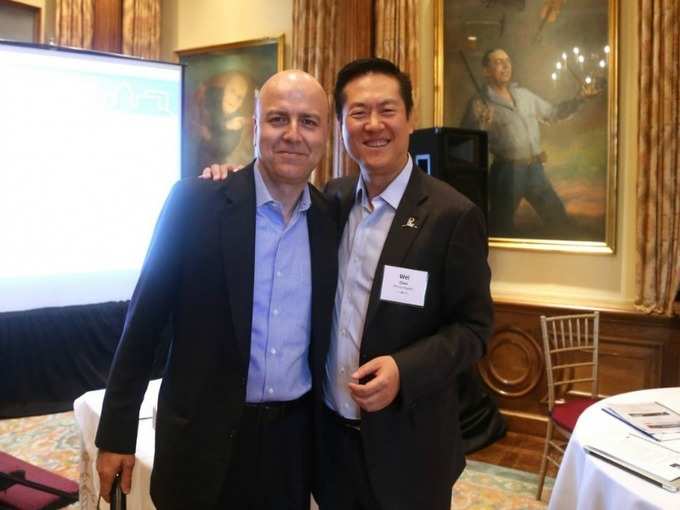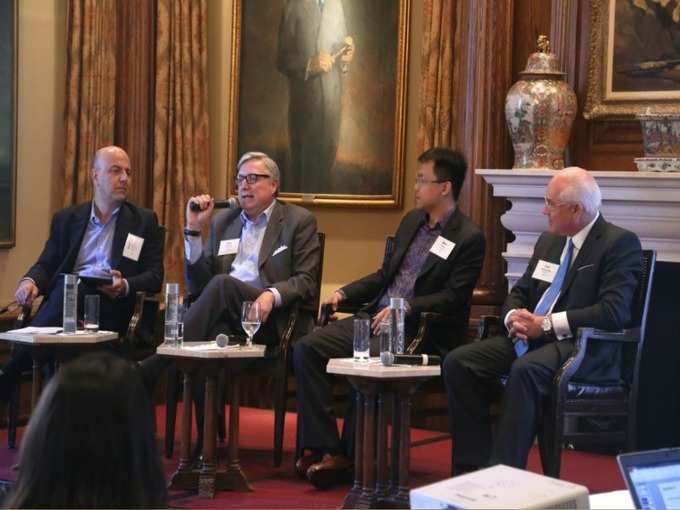 Between January 2013 and March 2014, Chinese direct acquisitions of commercial
Between January 2013 and March 2014, Chinese direct acquisitions of commercial In light of this, Reza Etedali co-chaired a sold-out
As CEO of REZA Investment Group, Etedali is responsible for a multibillion-dollar transaction track record as the premier retail real estate investment advisory firm. The group focuses resources on shopping centers and other retail investment opportunities with clients that run the gamut from major Chinese and American real estate investors and developers.
Etedali’s and Chen’s experience was the foundation of the architecture of April’s event. Discussions revolved around sharing best practices and insights for raising Chinese capital, understanding current and future trends and discussing the cultural challenges inherent in East meets West deal making.
Recognize Cultural Differences
“There are significant cultural differences between the United States and China,” says Etedali. “Understanding these differences and building a solid and personal relationship with Chinese investors is key to making a deal work.”
While cultural differences like communication and body language are frequently discussed, the more structural disparities that can affect a deal are often not.
“America has a lot of systems in place that do not exist in China,” says Etedali. “In America you negotiate in the beginning and proceed to close. In China, sometimes the negotiating continues all the way until close.”

Establish Personal Relationships
The system of trust within the U.S. business structure is very different from that of China’s.
“Typically when we open an escrow we don’t think about the person behind it,” Etedali explains. “In China, your business partner will ask, ‘Who is the individual you’re sending the money to? What’s their name? Do you have a relationship with them?’”
One of the biggest lessons learned over the course of the event was the importance of building a relationship prior to negotiating terms.
“In China, first you build a personal relationship and then you do business,” says Etedali. “First you take your potential clients out to dinner, have them over to your home. Once you know them personally and a connection is built, everything else happens easily. If you skip this part you’re in for a tough proposition.”
Understand New Trends in Capital Flow
Another major topic of discussion at the event was new trends in capital moving from China into the U.S.
“The government is continuing to ease the flow of capital out China,” says Etedali. “The Chinese real estate market has significantly slowed and many investors – for diversification purposes and for higher returns – are now looking to United States.”
Recognizing that a balanced flow of capital going both in and out of a country creates a healthy
“Since there has been so much capital going into China over the past few years the government wants to promote investment capital going from China to other countries,” says Etedali. “This will also ensure better relationship with other nations.
The more buyers and investors you have in the property market the more stable the prices get. In the long term, more foreign investments create a stronger support for the values in U.S. The capital is more patient and can invest in development deals with more patient capital than what has previously been seen from U.S. investors.”
While cultural differences are still seen as the greatest challenge when it comes to the U.S. doing business with China, overcoming these differences can give you incredible leverage.
“Once you build a strong relationship, transactions are much easier to execute,” says Etedali.
Learn more about peer-to-peer networking in YPO.
The author of this article is Deborah Stoll from Young Presidents’ Organization (YPO).
This article is brought to you by YPO networks. YPO has more than 50 business, personal and social impact networks dedicated to robust education and idea exchange providing members with instant confidential connections to other YPO members around the world.